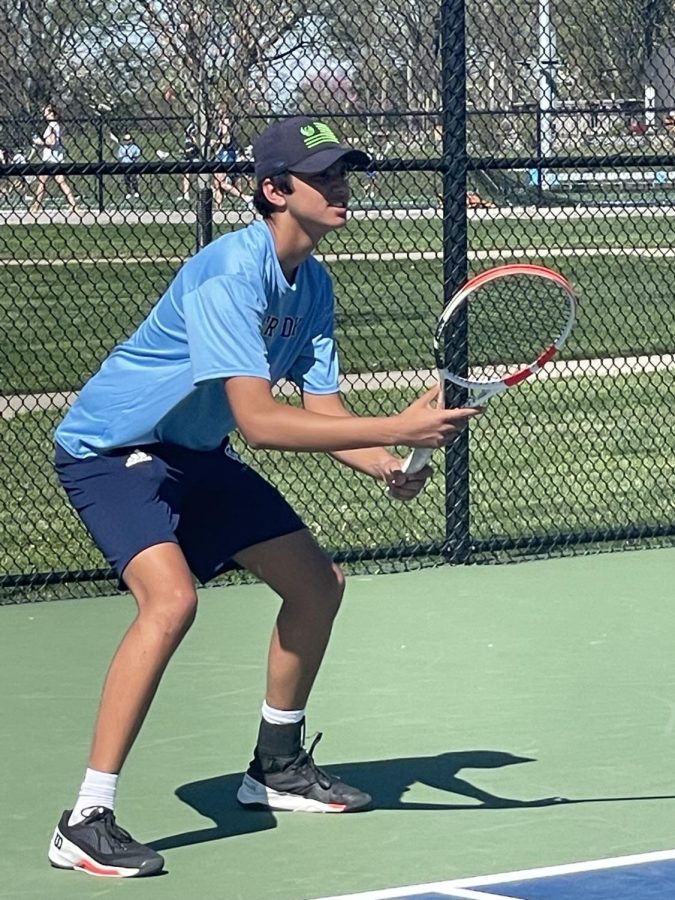By Jules Cantor ’11, Sports Section Editor
Over the course of the past four years, I’ve had some crazy ideas about my future as an athlete. When I entered high school, I was sure that I’d wind up a scholarship player in a Division 1 baseball program. Since then I’ve learned that things don’t happen just because you want them to, and that if you want to play a sport
in college, you really have to take it upon yourself to make it happen. I, myself, am not a recruited athlete, but am going to try to walk on next year. Throughout my pursuit of college athletics dreams, I realized that I, along with a lot of the prospective athletes I talked to, had some pretty big misconceptions about the recruiting process and college athletics in general. Here a few that I consider quite critical.
I have to play for a D1 school because the competition is automatically better since the school is bigger.
This assertion is false. What distinguishes D1 vs D2 vs D3 is the number of sports offered and the amount of funding the school is given, not the size of the school or the talent level the school attracts. For example, Davidson competes at the Division 1 level, but only has about 2,000 students, while Emory has about 13,000 and competes at the D3 level. While the competition may be better at large institutions like Ohio State, Texas, or Penn State, an aspiring athlete doesn’t have to set their eyes only on D1. Williams College, for example, has an excellent athletics program, having won 12 straight Sears Director’s Cups, given to school who achieve all around excellence in college sports. Schools like Williams offer world class educations and the opportunity to compete at a very high level. Just ask Joey Fritz ’10. Joey attends Williams’s NESCAC rival Amherst College, and was a five star tennis recruit coming out of high school. Joey had offers from numerous D1 programs, but ultimately chose Amherst because it was the right fit academically and athletically. D1 programs are often times a bigger time commitment, and often receive more national attention, but it simply isn’t the be all end all that some make it out to be.
If I get recruited, I’m going to be able to go to school for free.
This simply is not the case. For starters, D3 schools don’t give out athletic scholarships, but will give merit based financial aid to athletes. At the D1 level, the money-making sports such as football and basketball will give out full scholarships, but if you look at a sport like baseball, you’d be hard-pressed to find many players on full scholarship. Each D1 baseball program is allowed to offer 11.7 baseball scholarships to its players. Your average college baseball team consists of about 25 baseball players, so do the math, there isn’t money to throw at each player. Most of the money goes to pitchers or potential high round draft picks, while a lot of the players are “roster-spot players” or “preferred walk-ons” which means that when they are recruited, they are put on the team, but not given any money. When I attended University of Cincinnati’s college baseball prospect camp, the first thing the coach told us was “If you’re here to win a college scholarship, you picked the wrong sport.” Case in point.
If I’m good enough, they will find me.
If you want to play a college sport, you really have to put forth the effort to do so. The more a college coach hears your name or sees your face, the better chance you have to get recognized. If you meet a coach from a school you’re interested in, stay in contact via e-mail or telephone (coaches can’t call you until July 1 after junior year, but you can call as often as you want). If a school offers a showcase or camp, try to attend. There’s no better way for a coach to judge your talent level than to see you in person.
I don’t have to get good grades to attend a good school since I’m an athlete.
This is also false. Colleges put a lot of focus on the idea of the student-athlete. With that being said, all athletes have to go through admissions, just like any other student (though the coaches can help sway the decision greatly.) However, if a student isn’t academically qualified, admissions can tell a coach that they are out of luck. For some prospective athletes who aren’t offered scholarships, coaches might offer a roster spot, contingent on the student’s acceptance on academic merit. So getting good grades is very important, even for athletes, and sometimes, good grades make an athlete more attractive to a coach, because the coach perceives the athlete as someone who will stay out of academic trouble in college.
Photo courtesy of thesportsbank.com






